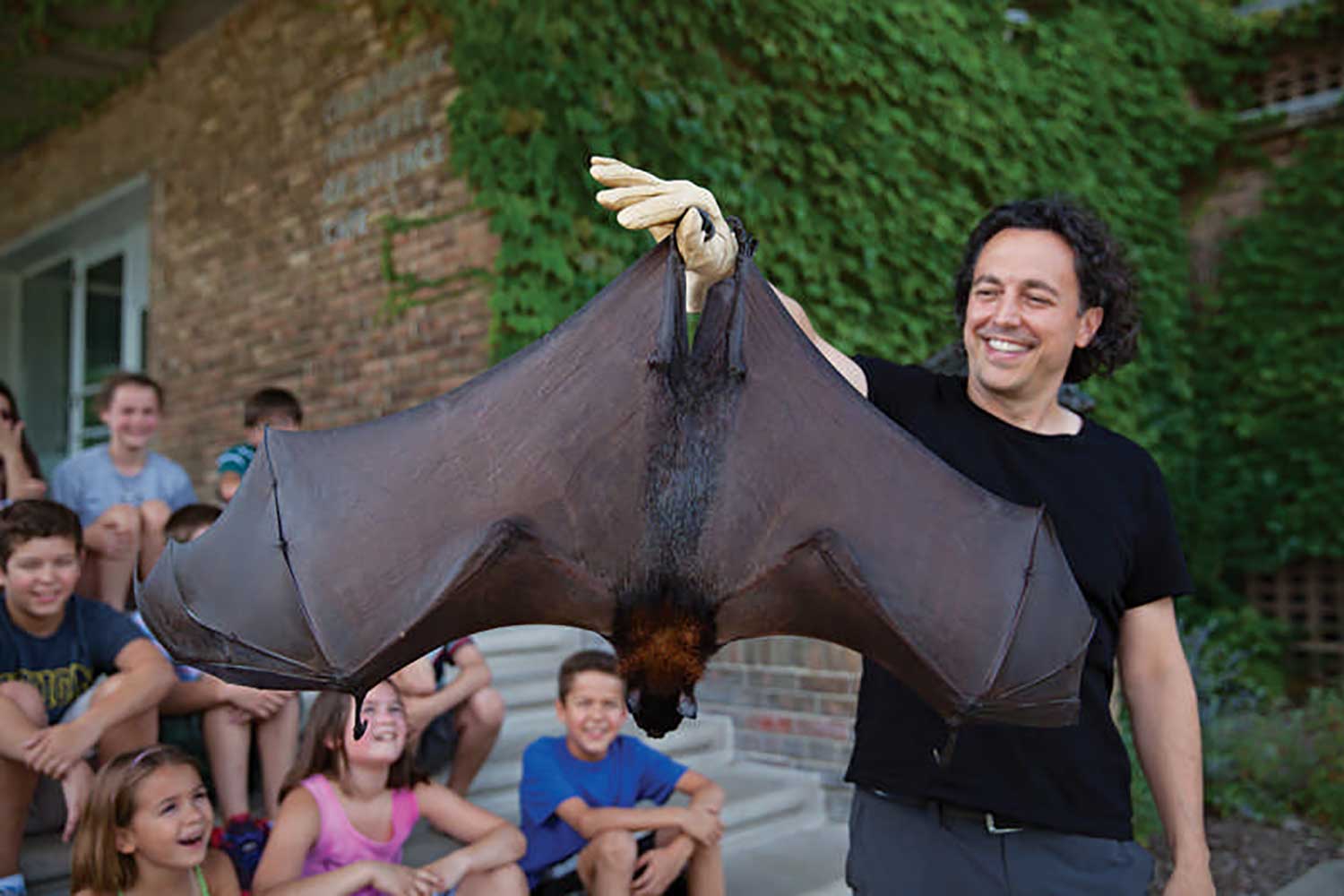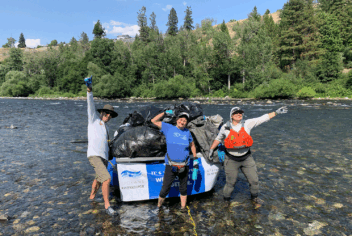Bats are an often misunderstood animal, evoking unnecessary fear from humans, which has led to the undue persecution of the bat community for centuries. However, these misjudged creatures of the night aren’t as frightening or ominous as we portray them to be. In fact, bats play a crucial role in our ecosystem, saving the world billions of dollars in pesticides, pollination, and seed spreading, and benefiting numerous industries. It was this that inspired the Organization for Bat Conservation founder Rob Mies to dedicate his career to bat protection and conservation efforts, and to start this now successful nonprofit 20 years ago.
According to Mies, he first became aware of the benefits of bats, as well as the threats to the species, while attending college. As a student, Mies was impressed by the importance that bats play as the primary predator of night-flying insects, as well as how few people knew about the impressive list of ecological services that bats play around the world. In 1992, Mies began studying bats, with the goal of becoming a professor and a full-time ecologist. However, after his research on endangered species was featured in a local newspaper, several local school principals contacted Mies to speak with students about bats. This led to more and more speaking engagements, which prompted him to “reconsider the impact of education.” At the time, several injured bats also came into the university lab for rehabilitation, and unfortunately, some of the bats could not be released. All of this created the perfect storm for the Organization for Bat Conservation, which was founded as a center for injured and orphaned bats and an education organization in response to these events in Mies life.
In the 20 years since the Organization for Bat Conservation was founded, it has grown tremendously, with 15 dedicated staff members, dozens of interns, and hundreds of volunteers committed to the nonprofit’s cause, as well as 250 rescued nocturnal animals including not only bats, but also owls, flying squirrels, skunks, and a two-toed sloth. Along with the organization’s growth, Mies has seen society’s attitudes about bats change dramatically, viewing these furry, flying creatures as beneficial rather than demonic.
Other successes worth mentioning — appearances on The Today Show, The Ellen Degeneres Show, The Martha Stewart Show, and the Tonight Show, which allowed the Organization for Bat Conservation to reach millions of people. The organization also had the privilege of partnering with the cast and crew of “Batman v. Superman” in 2014, including director Zack Snyder and actors Ben Affleck and Amy Adams. According to Mies, the entire cast broke down and repurposed parts of the set, creating over 100 bat houses from the scraps. “Those bat houses were then auctioned off, with all proceeds going to the care of OBC’s Animal Ambassadors.” Additionally, Warner Brothers filmed the entire event, creating a public service announcement that was watched over 3 million times and launched the organization’s #SavetheBats Campaign online. The #SavetheBats PSA was even included in the Blu-ray special features for the film, a major and exciting success for the Organization for Bat Conservation.
Although this nonprofit has had many successes in its 20 years of operation, it faces its fair share of obstacles. According to Mies, “raising funds for bat conservation is the most difficult part…so many charities exist now and most are focused on human-related needs; most big companies and foundations are not concerned about the plight of bats.” There are also numerous threats to bats, including habitat loss, pesticides, and White-Nose Syndrome, an invasive fungus discovered in New York in 2006, which has since spread, killing more than 10 million bats. Despite these challenges, the organization continues its fight for bats just as hard, if not harder than when it was founded, constantly looking for news ways and initiatives to increase awareness.
This year, as part of its anniversary festivities, the organization is excited to announce the launch of its newest initiative: The Urban Bats Project. To kick this new initiative off, the organization moved its headquarters to Pontiac, Michigan, where it can help be a major part of the urban renewal currently underway there. “Bat house-building workshops, bat garden plantings, and engaging with the community to conduct citizen science monitoring studies are just a few of the exciting activation tactics underway.” The Urban Bat Project is also underway in nine other cities across the Midwest.
For more information on bats, bat conservation and what you can do to help this inspiring nonprofit, visit the Organization for Bat Conservation’s website at www.batconservation.org and check out the hashtag #SaveTheBats on social media.





